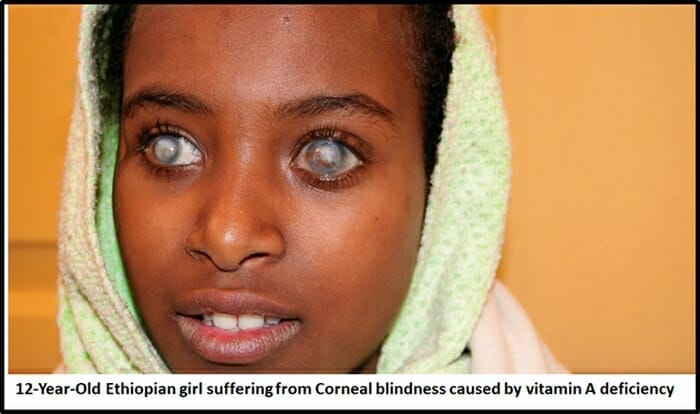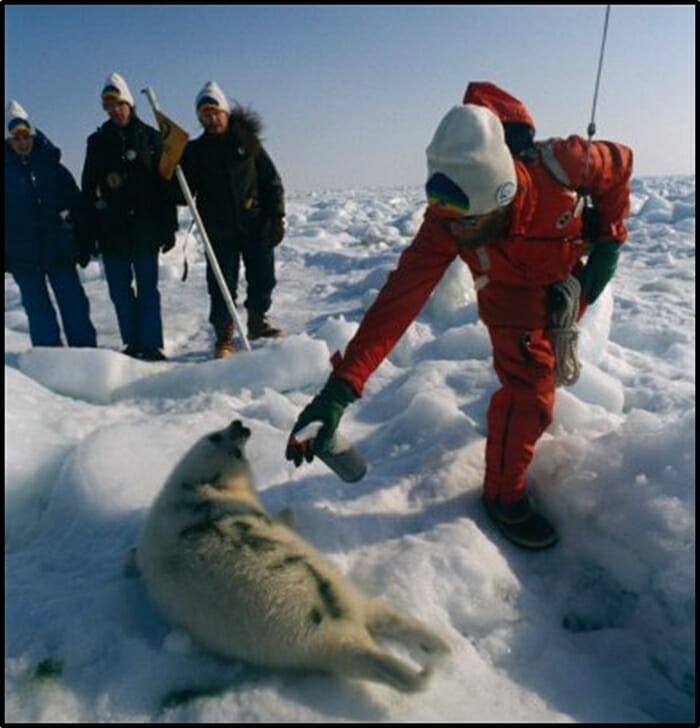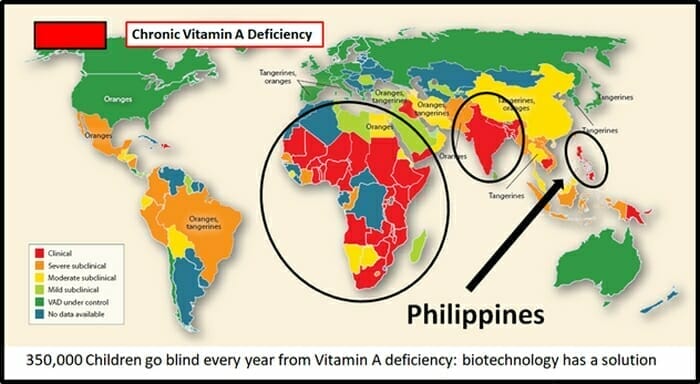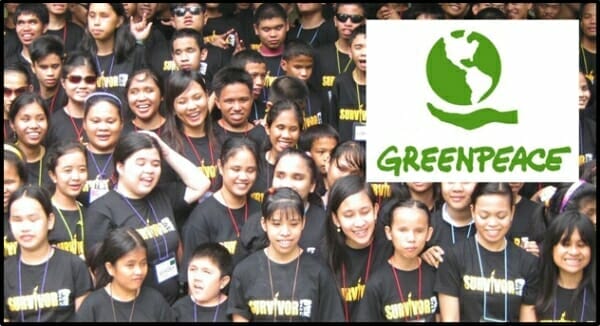350,000 brown children go blind every year from Vitamin A Deficiency (VAD). An astonishing 50% of them die within 1 year of losing their sight.
In mid-December, 2019 the Philippine Department of Agriculture approved Golden Rice, a genetically engineered, Vitamin A-enabled crop (GMO), declaring that it is “as safe as conventional rice.”
A GMO, or genetically modified organism, is a plant, animal or other organism whose genetic makeup has been modified in a laboratory using genetic engineering or transgenic technology.
This new rice tech is projected to save 100,000 children’s lives a year, stated the Golden Rice Humanitarian Board, a non-profit group of experts.
The Philippine ruling is “being touted as a victory for science-based regulatory decision-making,” states Observer Xtra.
Despite the utilitarian benefits of Golden Rice, the environmental group Greenpeace is fighting the ruling tooth and nail.
“Golden Rice is highly likely to contaminate non-GE rice,” warns Greenpeace, “GE rice contamination will affect traditional, conventional and organic rice farmers because they will lose their markets, especially export markets.”
For the parent of a blind dying child, arguments involving the preservation of “export markets” may not fully resonate.

Greenpeace’s stated goal is to “ensure the ability of the Earth to nurture life in all its diversity”, using direct action, lobbying, research, and ecotage (sabotage carried out for ecological reasons).
With offices in 41 countries, 2.8 million members and a patriarchal structure, Greenpeace has global revenue of USD $300 million. Its most successful fundraising catalysts have been images of beautiful animals about to be slaughtered.

Three years ago, 107 Nobel laureates signed a letter urging Greenpeace to end its opposition to genetically modified organisms (GMOs).
“We urge Greenpeace and its supporters to abandon their campaign against ‘GMOs’ in general and Golden Rice in particular,” stated the Noble laureates, “Scientific and regulatory agencies around the world have repeatedly and consistently found crops and foods improved through biotechnology to be as safe as, if not safer than those derived from any other method of production.”
There has never been a single confirmed case of a negative health outcome for humans or animals from GMO consumption. Their environmental impacts have been shown repeatedly to be a boon to global biodiversity.
As well as causing blindness, lack of vitamin A significantly increases the risk of illness such as diarrhoeal disease and measles.
The Philippines is the first country with a serious Vitamin A Deficiency problem to approve genetically modified rice.
According to the World Health Organization (WHO), many Filipino children are severely vitamin A deficient, , even though most of them are given vitamin A supplements.
Golden rice has already been approved as safe to eat in Australia, Canada, New Zealand and the US. Bangladesh, which also has a Vitamin A Deficiency problem, is expected to make a decision soon.
Vitamin A Deficiency is particularly prevalent in India, Africa and South-East Asia, where rice forms a large part of the diet.

The Greenpeace ideology (Yeah to All Things Green!) forms a sort of religious doctrine. No religion can survive by constantly revising its bible. Once Greenpeace has staked an anti-science position, it is very slow to change.
Example: Fifty years ago, opposing nuclear power was a no-brainer. Today, if you believe in climate change, opposing nuclear power is reckless.
“Greenpeace is wrong – we must consider nuclear power,” stated early (former) Greenpeace member Patrick Moore, “ Any realistic plan to reduce reliance on fossil fuels will require increased use of nuclear energy.”
Greenpeace responded by warning that “Nuclear power plants remain vulnerable to terrorist attacks” and “Mr. Moore is a paid spokesman for the nuclear industry.”
In the western world, we waddle off to bed with full bellies knowing that 800 million brown-skinned people on the other side of the world will go to bed hungry.
“Emotional gating” is the ability to filter out other people’s misery. People who lack this ability generally go insane.
“Food scarcity” doesn’t have an easy fix.
Vitamin A Deficiency does.
The Philippine government is the first to embrace it.
Based on history, Greenpeace will be the last.
– Lukas Kane


Leave a Reply